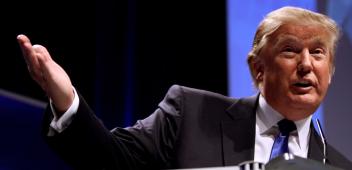How will the United States manage the new challenge to the old status quo?
Originally published in the Australian Financial Review.

Executive Summary
Herman Kahn, one of the nuclear strategists collectively known as the "wizards of Armageddon", once observed that a unipolar or bipolar system could be stable, and a multipolar system could be stable – but the transition from one to the other was unstable.
The great diplomatic challenge of the next decades is one of transition: how do we reconcile the interests of rising powers with those of the status-quo powers? How do we reintroduce strategic stability and deterrence into a multipolar system that's wobbly because of the military modernisation and aggressive actions of Russia and China?
I travel often with military leaders, and they tell me they never want the US military to fight another Iraq-style war of occupation, or for that matter another war of regime change. The rise of Islamic State has certainly concerned the military, but some of the strongest arguments Obama has received against large-scale intervention in Syria and Iraq have come from the generals.
What the four-stars worry about most is the return of great-power rivalry and the resurgent militaries of China and Russia, which have demonstrated the ability to operate complex battle management systems that were, until recently, the unique province of the United States. Yet anyone who assumes the US is standing still while Russia and China modernise their militaries is mistaken.
Building deterrence
Now, China is trying to decide whether and how to live in this multilateral, rules-based order. It's encouraging that, so far, rather than doubling down by announcing an Air Defence Identification Zone, as had been feared, the Chinese are pondering their next move. If the Chinese decide to challenge the arbitrators, and escalate this dispute, we are in for a rough ride. But the likelihood is that the Philippine arbitration will temper Chinese unilateralism.
We Americans like to think of "American exceptionalism". The world was rebuilt in the shadow of American power after World War II. A hundred years before, the organising myth would have been the story of the British Empire, of which Australia, like America, is both an example and an exception. By the end of this century, the defining global story may well be China's rise to a super-state. But for now, the American story remains a foundation stone. And for a country that spent 60 years as the world's only real superpower, the habit of "playing well with others" is difficult. We are still, culturally, the frontier nation with a residue of belief in manifest destiny.
Tricky transition
Hillary Clinton would be a good next point in this transition process. She would seek a security architecture that reconciles revolution and status quo; she would support the projection of US military power using new technology; and she would seek a fact-based world that can resist polarisation, partisanship and entropy. Yes, American leadership will suffer if she sticks to her announced view that she will oppose TPP. That will cede momentum in the Asia-Pacific to China. I hope that President Obama carries through on his promise to Prime Minister Lee of Singapore to pass the TPP during the lame-duck session. We'll all pay a price if he fails.
And Donald Trump? On current evidence, Trump's election would be a demonstration that good countries can make shatteringly bad decisions. I fear that Trump, rather than renewing the American-led global order, would turn his back on it and go home.


